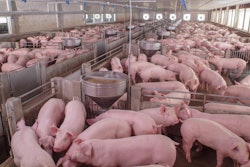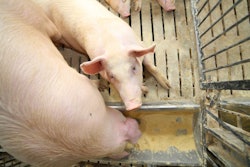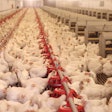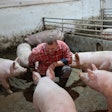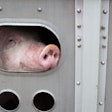
New Jersey bill A1970 Acs (ACS), a potential animal-welfare law, passed the state senate on June 20, 2023.
The bill establishes criminal offenses and civil penalties regarding the confinement of breeding pigs and calves raised for veal. If approved, the law will require 24 square feet of usable floor space per breeding pig and 43 square feet of usable floor space per calf.
According to the New Jersey Legislature, exemptions to the proposed confinement standards include:
- Medical research
- Examination, testing, individual treatment or operation for veterinary purposes, but only if performed by or under the supervision of a licensed veterinarian, either in person or via a telemedicine appointment
- Transportation
- State or county fair exhibitions, 4-H programs or similar temporary exhibitions
- Humane slaughter in accordance with applicable laws and regulations
- Confinement of a breeding pig during the 14-day period prior to the expected date of the breeding pig giving birth or on any day when the breeding pig is nursing piglets
New Jersey Governor Murphy has 45 days from June 20 to act on the bill.
According to Food Market, ACS passed the state assembly in May 2023 and was first introduced and raised to the Assembly Judiciary Committee on January 11, 2022. The bill is sponsored by Senator Vin Gopal and Assemblyman Raj Mukherj.
Similar housing laws are being postponed in other states
While some states, like New Jersey, are still trying to create animal housing laws, other states are postponing the implementation of theirs.
In June 2023, a California court officially extended the time by six months in which whole pork meat that does not comply with the state’s Proposition 12 housing law, and is already in the supply chain, can be sold.
The implementation date for Proposition 12 was extended from July 1 to December 31, 2023. The extension does not delay the requirements of Proposition 12, meaning any pork harvested after July 1 that will be sold in California is still required to be compliant with the housing regulation.
“It is welcome news to America’s pig farmers and consumers that California recognized the challenging situation the July 1 Proposition 12 implementation date will have on our industry and food supply. Granting six months of additional relief for products in the supply chain allows grocery stores to remain stocked so the 40 million Californians have uninterrupted access to affordable, safe and nutritious pork products, especially with rising food prices," stated National Pork Producers Council (NPPC) CEO Bryan Humphreys.



